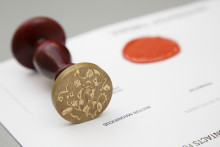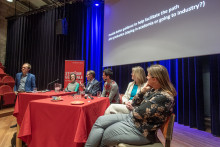The PNN five-point plan was released on the National PhD Day, the 29th of October, 2016. The plan is a reaction to the current situation of PhD researchers in the Netherlands and the proposed experiment, within which PhD’s are to be regarded as students rather than employees at all universities that wish to do so. P-NUT (PhD Network of the University of Twente) is against such experimentation and is pleased that the UT has decided not to take part in it.
Contracts of four years as the norm
With regards to the experiment, which has so far been implemented at the University of Groningen, the first point of the PNN plan states that ‘PhD research equals work’, and PhD candidates should therefore never be considered students. Secondly, PNN demands that universities do not provide PhD’s with dubious contracts of less than four years. ‘Four years of full-time work should be the norm’, says the plan, and no other contracts should be offered or accepted, because four years are most often necessary to complete the candidate’s research.
Further, PNN asks for clear agreements regarding teaching duties of PhD researchers to ensure that they can mainly focus on their research projects. PNN wants teaching to constitute maximum 20% of the candidates’ overall activities. The plan of the PhD Network also points out that the candidates should always have opportunity to sufficiently prepare for jobs outside the academia, because only 20% of PhD graduates remain working in science.
P-NUT supports efforts against such experiments
P-NUT has issued an official statement on the bursary experiment. In it, the UT organization states: 'The PhD Association of the University of Twente (P-NUT) shares the views of PNN against the bursary experiment and strongly supports the concerns voiced by all prominent Dutch Universities which decided not to participate.'
'The Netherlands has pioneered setting the proven, successful employee PhD standard (AiO) and this example is considered by other countries worldwide. P-NUT believes that the bursary experiment is a step-back to the proven Dutch paradigm and will lead to marked losses in competitiveness and research level of the Dutch Universities, along with the legal and administrative problems. We are happy that the University of Twente did not apply for the experiment and we support PNN in their efforts against such experiments in the future.’







